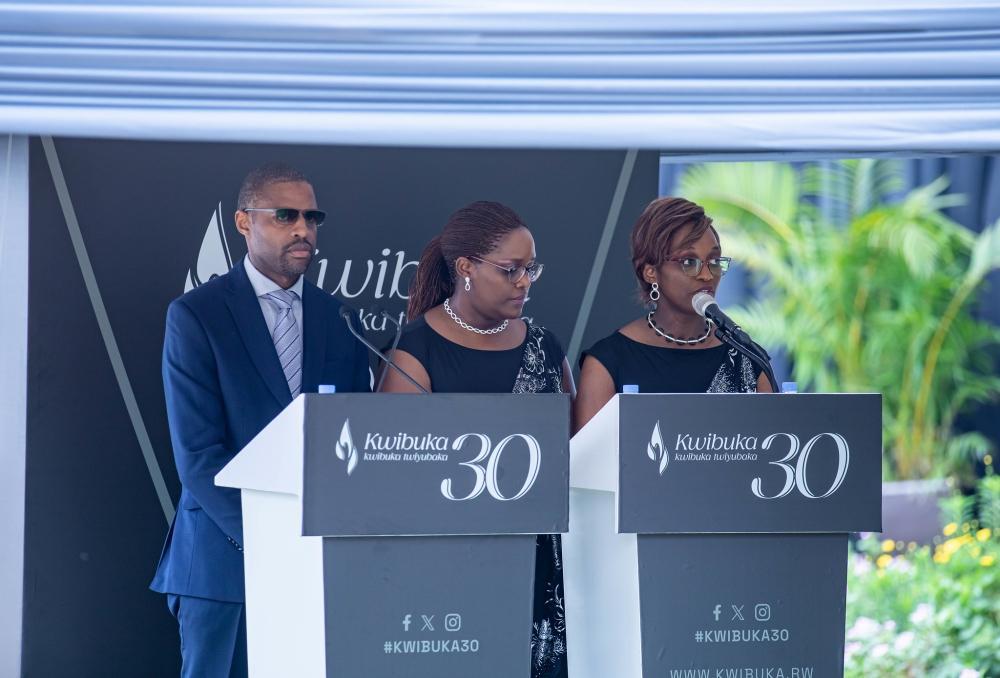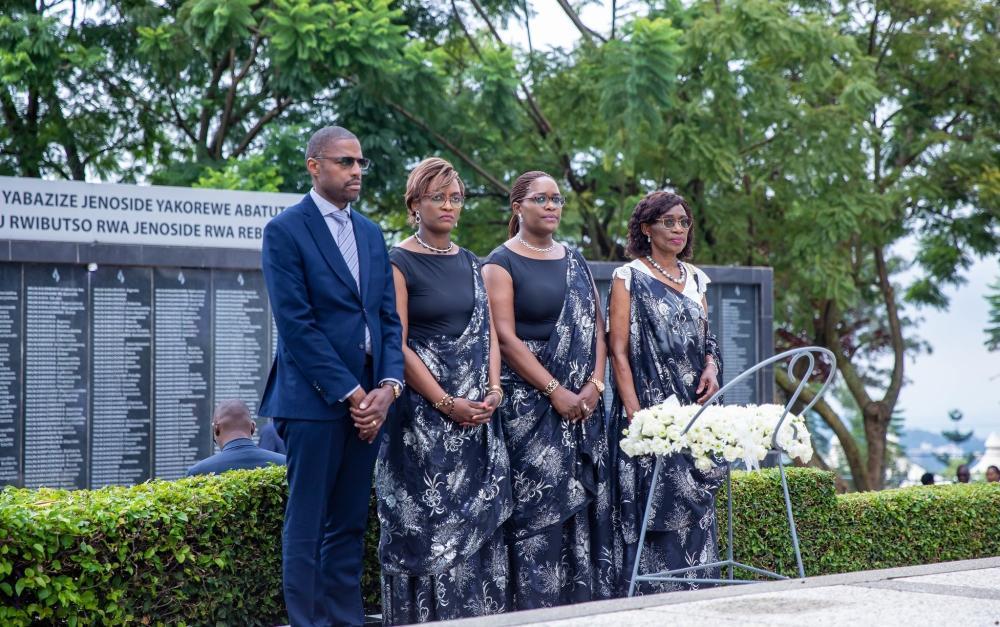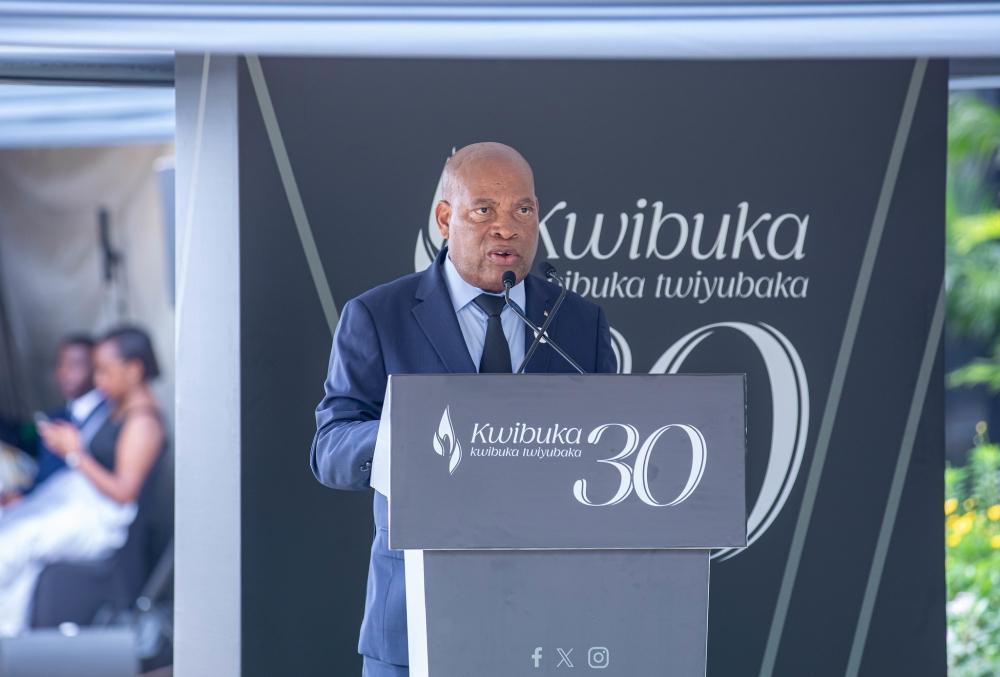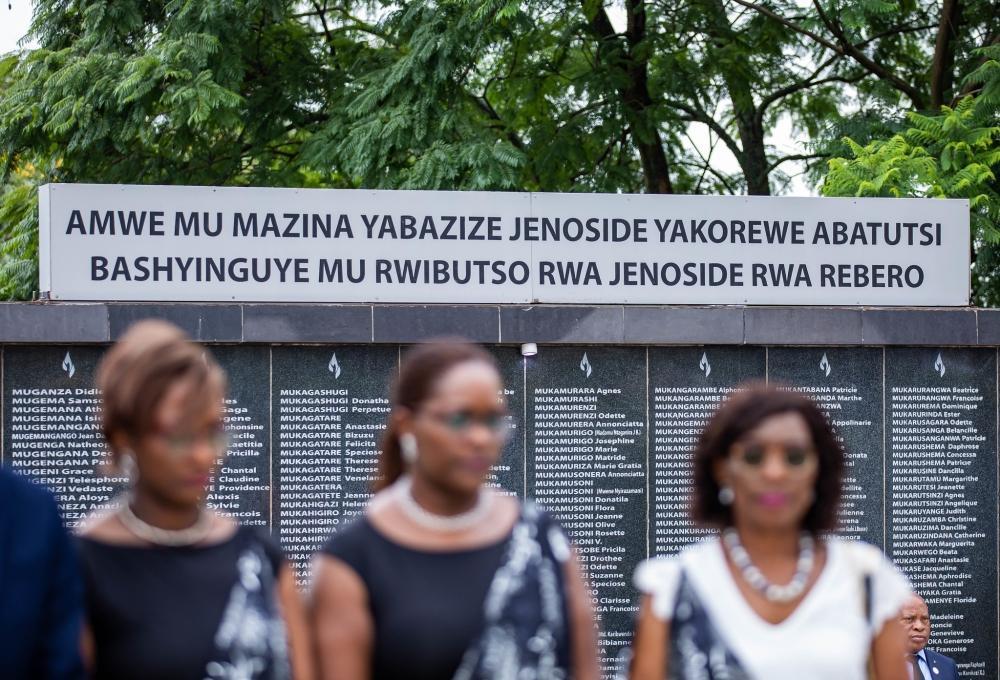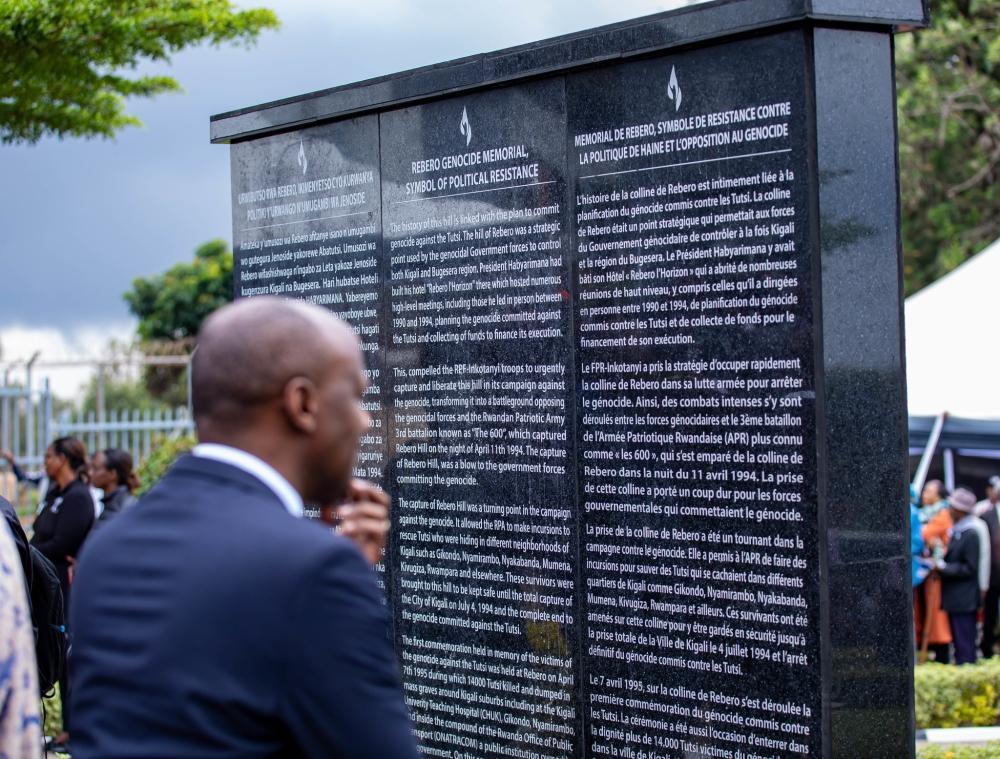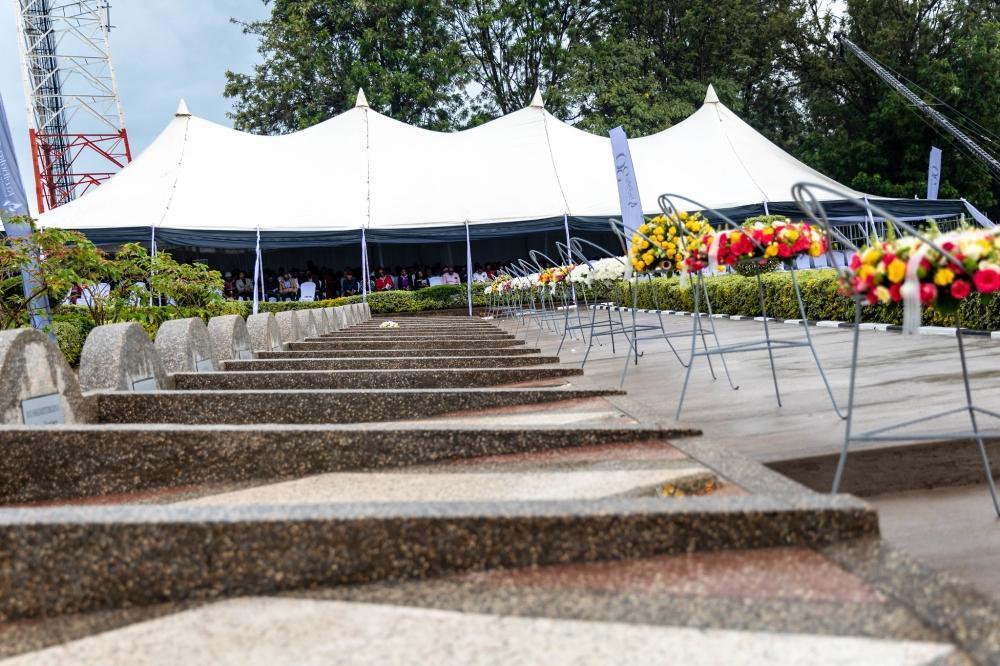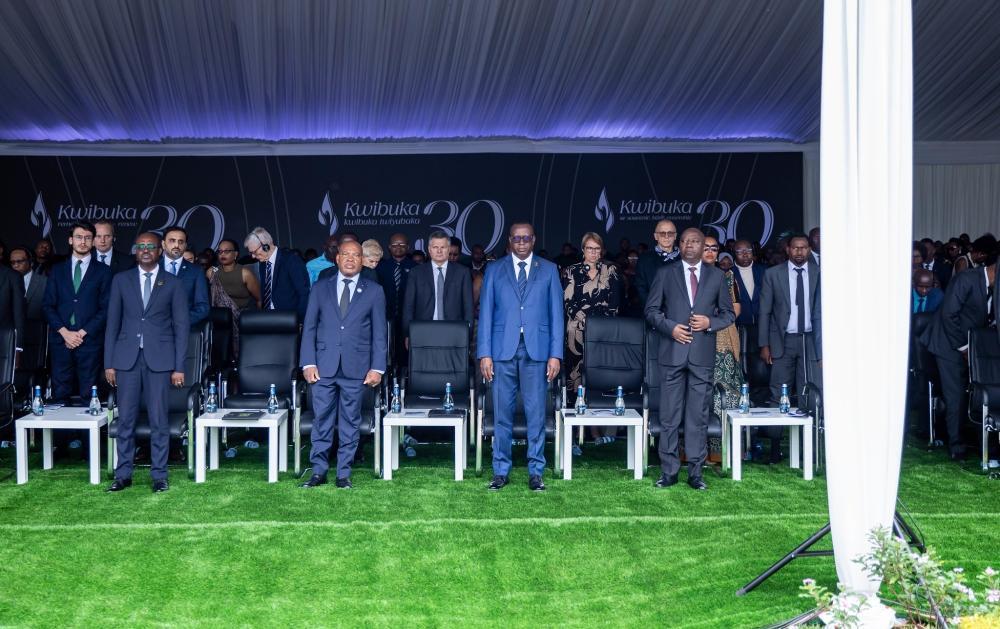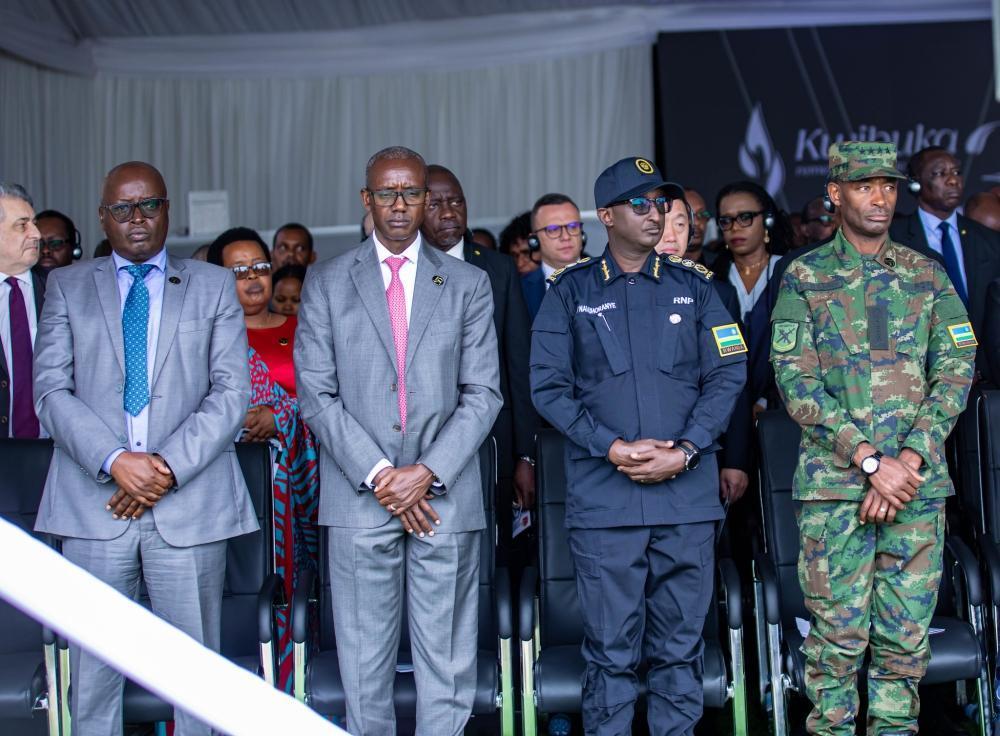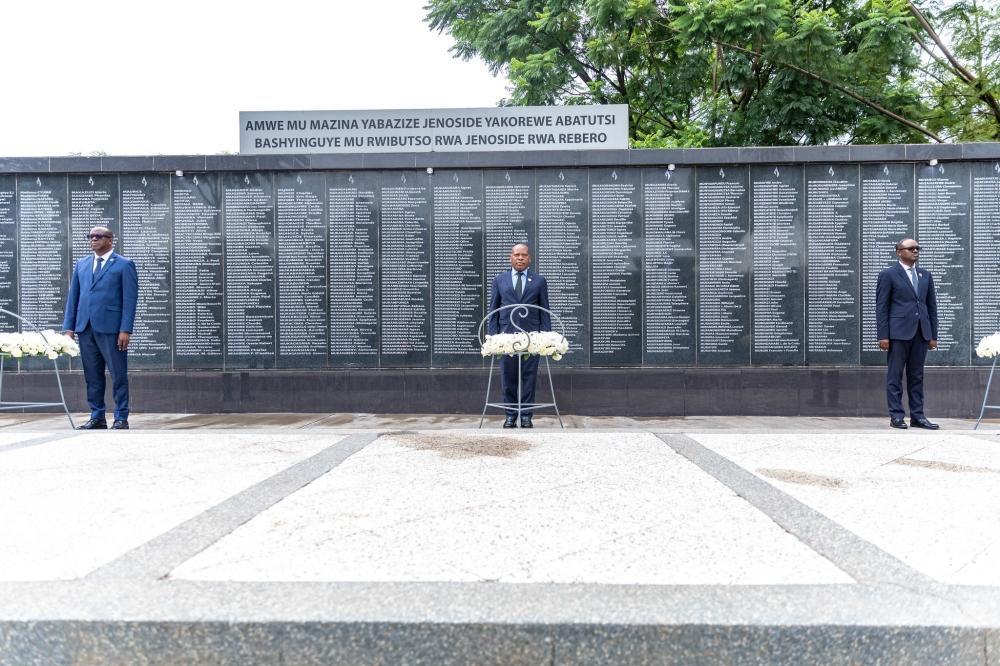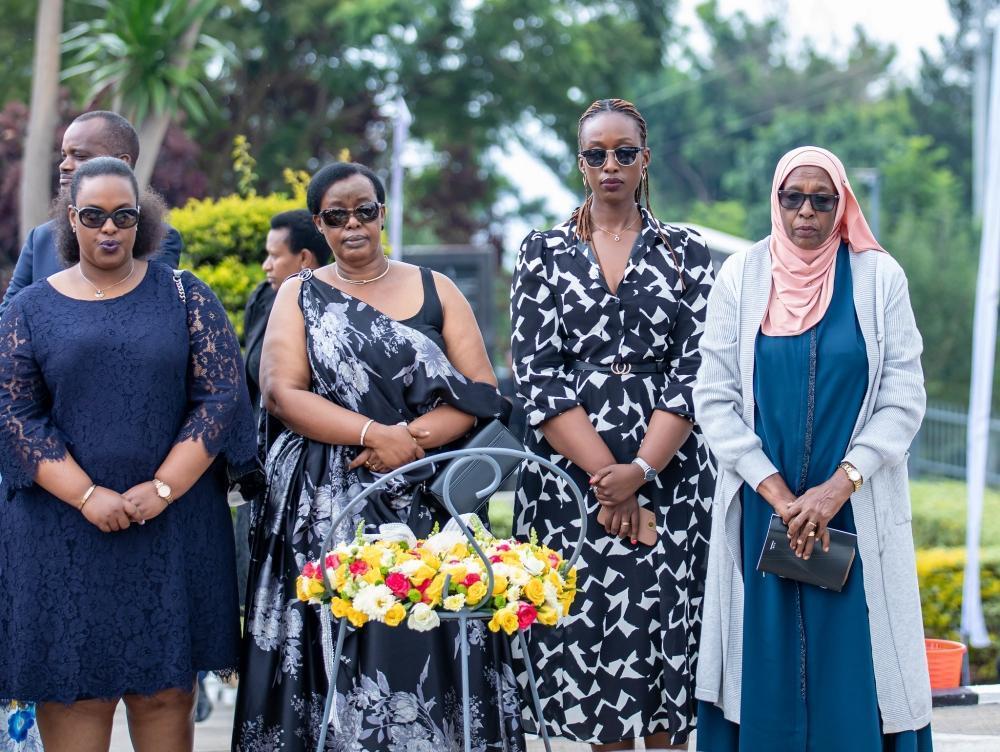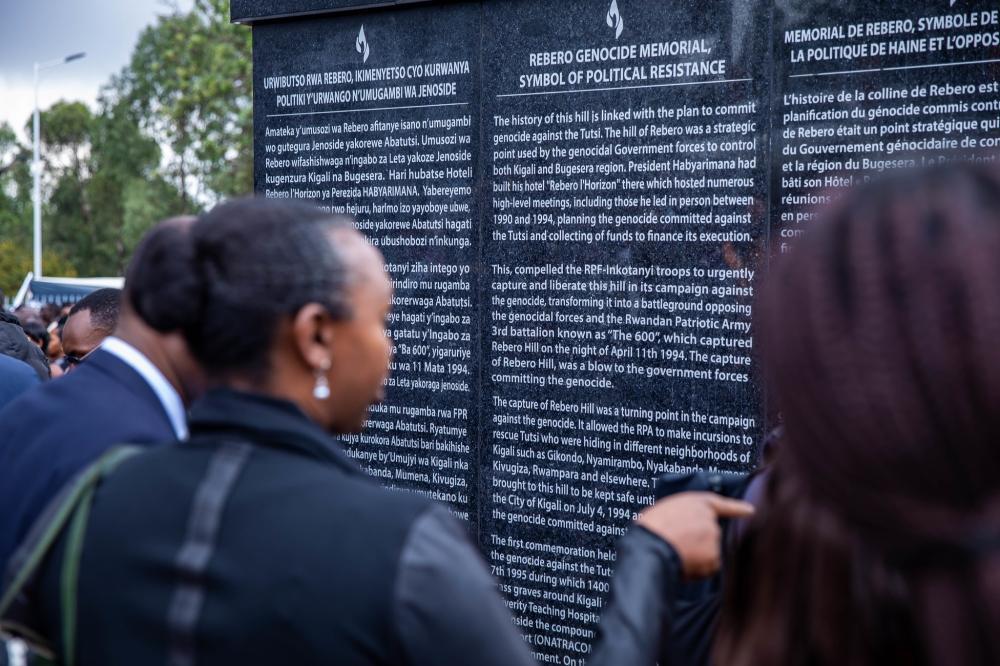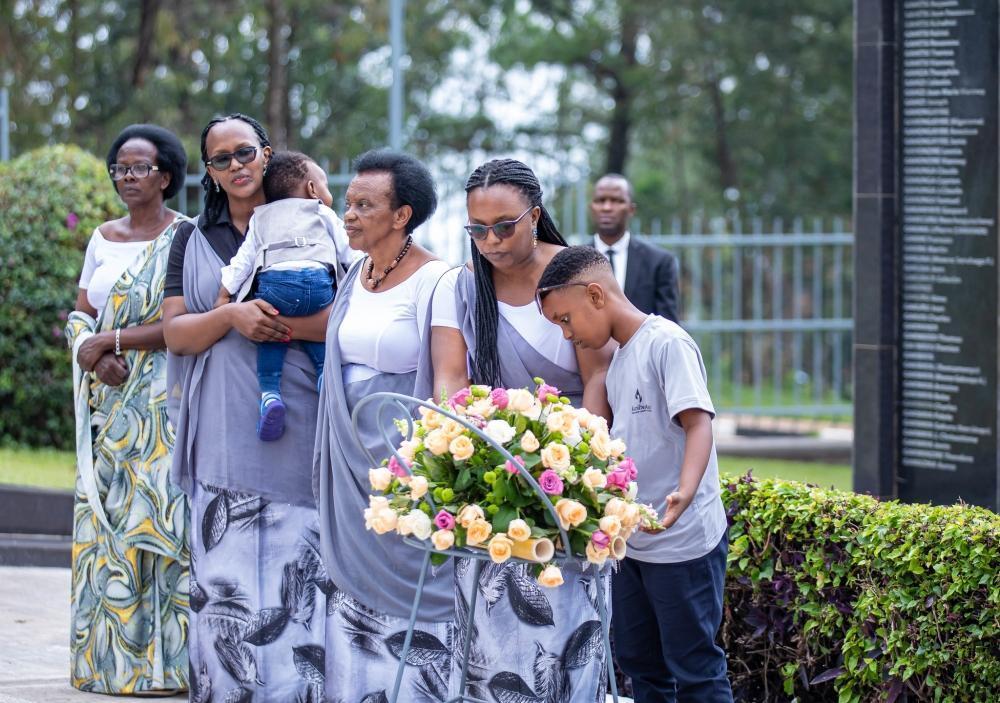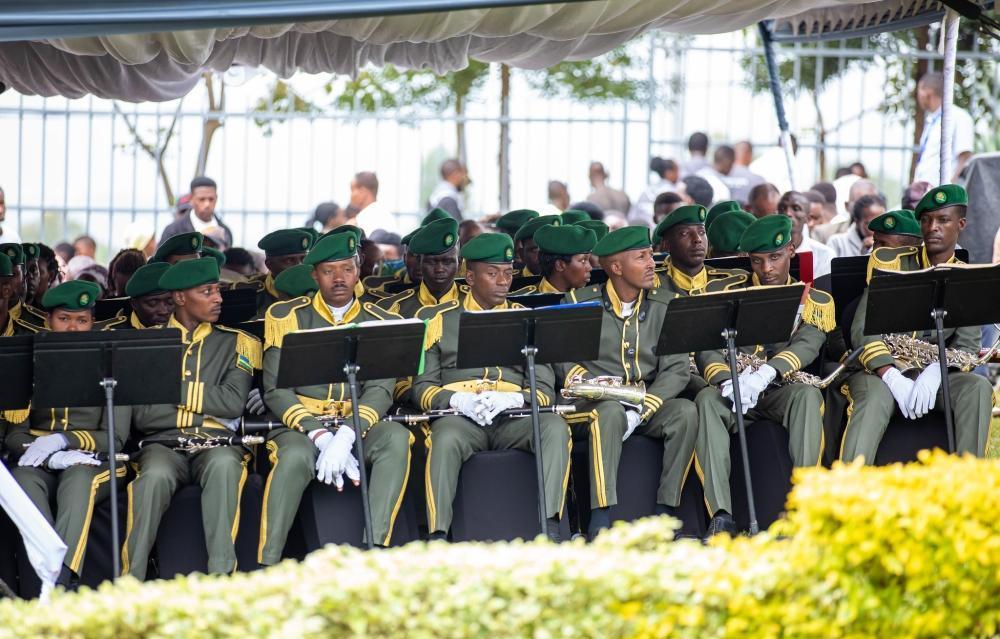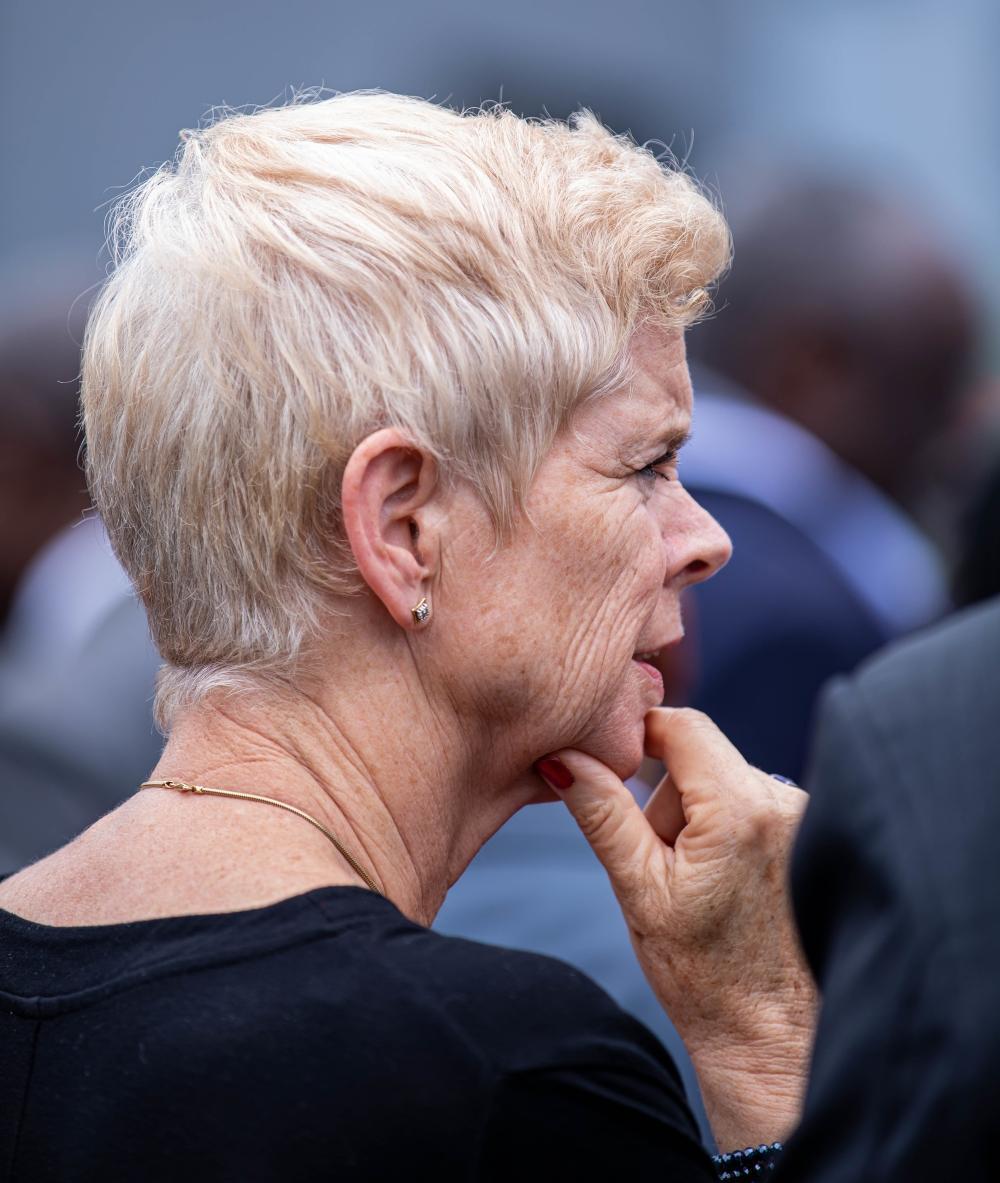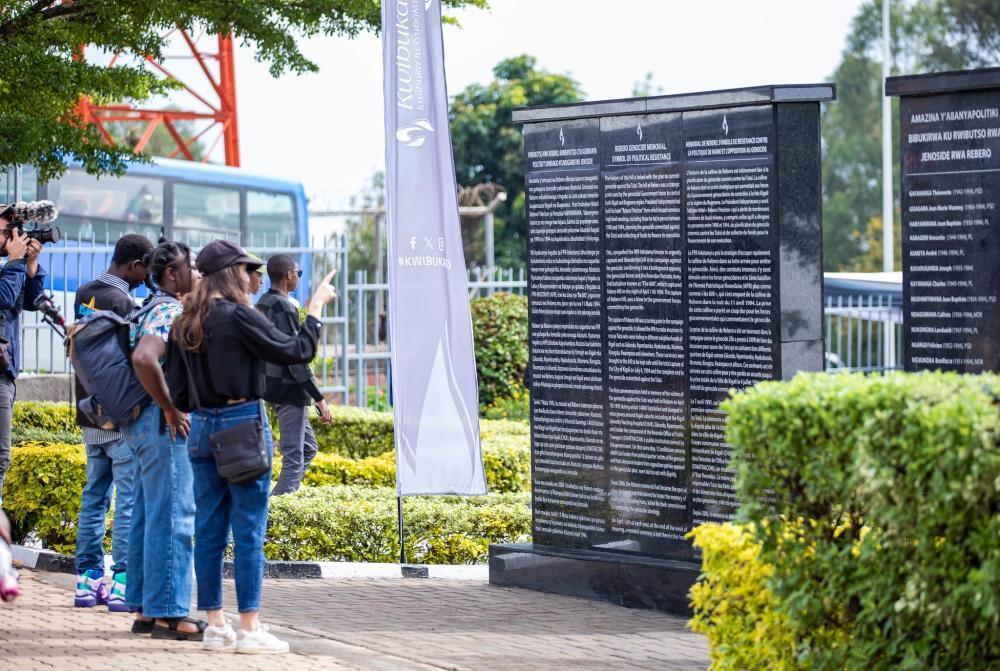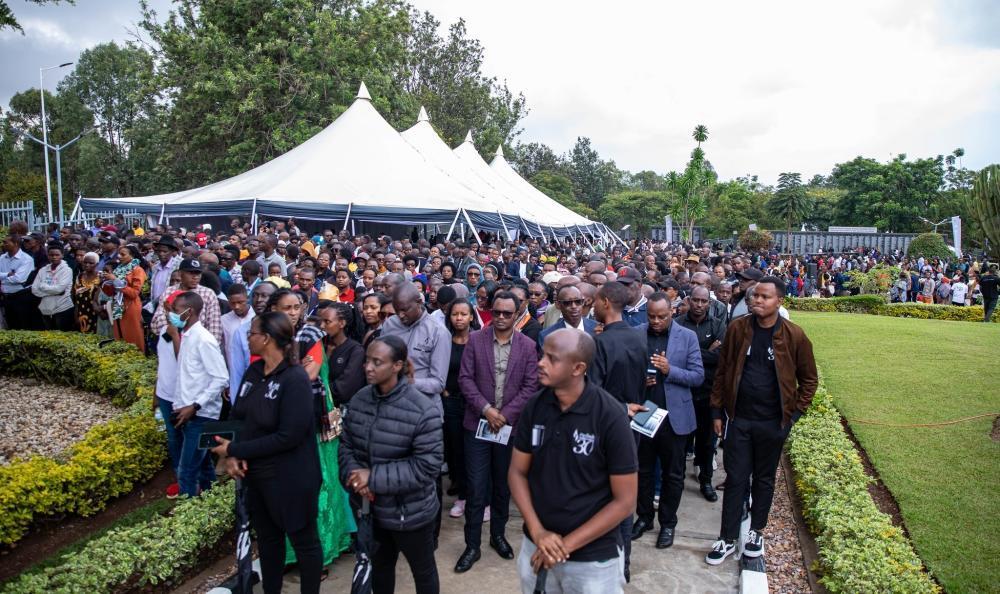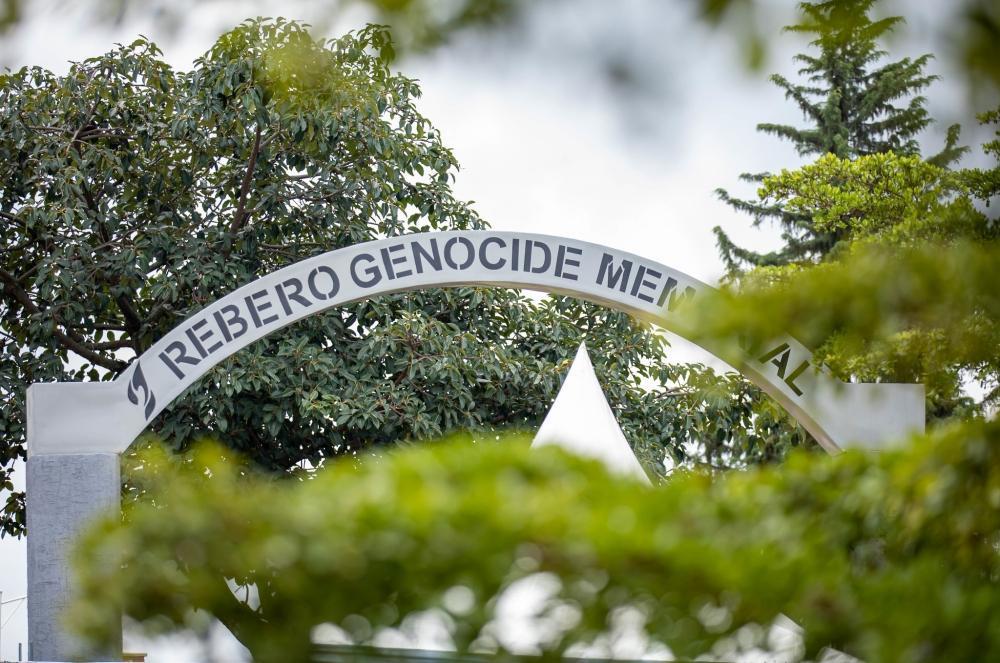Africa-Press – Rwanda. As Rwanda closed the National Mourning Week, on Saturday, April 13, in a ceremony held at Rebero Genocide Memorial, 21 politicians, who were killed during the 1994 Genocide against the Tutsi were honoured for standing up against bad politics.
One of the politicians is former Minister of Foreign Affairs Boniface Ngulinzira, who was killed on April 11, 1994. On that day, Ngulinzira, his wife Florida Mukeshimana, and their four children were with nearly 3,000 Tutsi who had sought refuge at ETO Kicukiro, before being abandoned by UN forces.
In the ceremony held on Saturday, Senate President François-Xavier Kalinda paid tribute to Ngulinzira and other politicians whose deeds and bravery were honoured for opposing the Genocide against the Tutsi.
Born in 1950, in current day Burera District, Ngulinzira was a linguist by training. He served as a presidential advisor on education from 1989-1991.
In 1991, he was one of the politicians who left President Juvenal Habyarimana’s extremist party MRND to join MDR. He became the foreign minister in April 1992, and in that position, he would represent the Rwandan government in the Arusha peace talks with RPF-Inkotanyi.
PHOTOS: Senior government officials, chiefs of security institutions and families of politicians killed during the 1994 Genocide against the Tutsi and representatives of survivors’ associations lay wreaths in honour of over 14,400 victims interred at Rebero Memorial.#Kwibuka30 pic.twitter.com/CwJugJxopD
— The New Times (Rwanda) (@NewTimesRwanda) April 13, 2024
Ngulinzira’s son, Cyrille Uwukuli, who was 18 in 1994, said his father had been tormented due to his conviction that unity was the only key to a peaceful Rwanda, to which tens of thousands of exiled Tutsi would return.
Boniface Ngulinzira’s children, Cyrille Uwukuli, Marie-Yolanda Ujeneza, Olive Isabo, and their mother Florida Mukeshimana lay a wreath at Rebero Genocide Memorial on Saturday, April 13, 2024. Photo by Dan Kwizera
Ngulinzira resigned as a minister after Habyarimana said he would not sign the Arusha accords, which he called “Ngulinzira’s accords,” Uwukuli noted.
Uwukuli said their family received threats through their landline phone, adding that his father had been deleted from the civil register in his home district.
“Our family was not registered anywhere,” he said.
Like other ministers, at the beginning of the Genocide, Ngulinzira’s home was protected by Belgian soldiers. The Belgians took Ngulinzira’s family to ETO Kicukiro, after turning down his request to evacuate his family.
Ngulinzira’s last born, Marie-Yolanda Ujeneza Ngulinzira who was 13, recounted the last moments with her father after they decided to flee from ETO Kicukiro through the bushes and banana plantations around the old technical school only to bump into Interahamwe militia who arrested them and kept them in a nearby house.
“I came to learn later that the killers of Kicukiro, Gatenga, Kagarama and Centre, all of them, celebrated the arrest of Ngulinzira,” Ujeneza said.
Later that day, soldiers took Ngulinzira away from his family.
“Until today, we don’t know how he was killed and where his body was put,” she said.
“We hear that he was killed at Munyinya, Gatenga by soldiers and Interahamwe on April 11. From history, I learnt that Radio RTLM celebrated his death on April 12, 1994.”
After Ngulinzira was taken away, Ujeneza said, the rest joined in a prayer not knowing what would happen to them. An unidentified person took them in and hid them for a few days before they changed hiding places throughout the three months of the Genocide.
Ngulinzira’s wife and children ended up in Belgium on July 15, 1994.
Some names of over 14,400 victims interred at Rebero Memorial.
In 2004, Ngulinzira’s family, along with some Genocide survivors, sued the Belgian government and three Belgian soldiers who served in the UN forces over their responsibility in the killings, at Nyanza, of thousands of Tutsi who were abandoned in the hands of Interahamwe.
In a primary court, they won the case, which the Belgian government appealed.
“In the court of appeals, in 2018, we lost the case,” Ujeneza said. They chose not to appeal because they were convinced that they would not get justice.
“However, we have never lost the battle of history, because we were able to pursue those who abandoned us,” she said.
#Kwibuka30: Senate President François-Xavier Kalinda arrives at Rebero Genocide Memorial, where he will preside over the closing of the National Mourning Week in which politicians who stood up against the 1994 Genocide against the Tutsi will be honoured.
Ujeneza, who is 43 – the same age his father was when he was killed – said she had learnt from her father the will to fight for one’s right and those of others.
“His opposition to dictatorship taught me that my rights and those of others are inviolable, even if the tormentor may feel stronger than me,” she said.
Besides Ngulinzira, the other nine politicians are Godefroid Ruzindana, former prefect Kibungo prefecture; Jean-Gualbert Rumiya, a university professor and former member Habyarimana’s party, MRND; Vincent Rwabukwisi, the founder of Kanguka newspaper and politician; and Jean-Baptiste Habyarimana, former prefect of Butare prefecture.
There is also Calixte Ndagijimana, burgomaster of Commune Mugina; Narcisse Nyagasaza was the burgomaster for Commune Ntyazo; Jean-Marie Vianney Gisagara, burgomaster of Commune Nyabisindu; and Theoneste Gafaranga, a private medical practitioner and member PSD party.
“We must not forget the history of the Genocide against the Tutsi in order to hold onto our unity and remain ready to fight against genocide ideology in all its forms and wherever it may come from,” said Senate President Kalinda.
“In the implementation of the genocidal plan, MRND and other parties that were part of Hutu Power had a direct role. Today, political parties and their politicians have a responsibility of preventing and fighting Genocide ideology and striving for the unity of Rwandans.”
Senate President Kalinda delivers remarks at Rebero Genocide Memorial
The Senate President commended RPF-Inkotanyi that stopped the Genocide and worked with political parties that was not involved in the ethnic politics to rebuild the shattered country and usher in a new form of governance that prioritises the unity of Rwandans.
Abbas Mukama, the spokesperson of the National Forum for Political Organisations, stressed the need for parties to learn from the slain politicians in order to strive for good governance that upholds the unity of Rwandans.
“We appreciate that all the political organisations in Rwanda today are committed to consensus politics through tolerance, consultation, and national unity,” Mukama said.
April 13 also marks the end of the mourning week, which began on April 7. But activities of the 30th commemoration of the 1994 Genocide against the Tutsi continue until June 19.
Susan Nyiranyamibwa sings one of her commemoration songs during the event at Rebero
The commemoration event in honour of over 14,400 victims interred at Rebero Memorial.
Senior government officials, chiefs of security institutions and families of politicians killed during the 1994 Genocide against the Tutsi, observe a moment of silence
Senior security officials observe a moment of silence to pay tribute to victims at Rebero Genocide Memorial on Saturday, April 13.
Prime Minister Edouard Ngirente lays a wreath to pay tribute to victims at Rebero Genocide Memorial
Mourners observing a moment of silence to honour victims of the Genocide against the Tutsi at Rebero Genocide Memorial
(L-R) Jean Damascene Bizimana, the Minister of National Unity and Civic Engagement, Senate President François-Xavier Kalinda and IBUKA president lay wreaths to pay tribute to victims at Rebero Genocide Memorial.
Mourners lay wreath to pay respect to their relatives who were killed during the Genocide.









For More News And Analysis About Rwanda Follow Africa-Press

